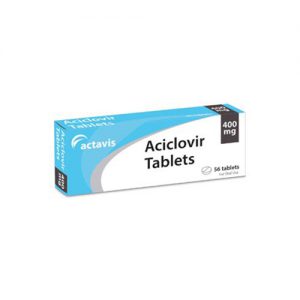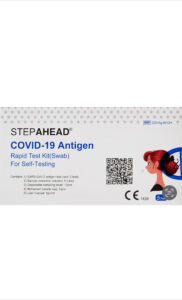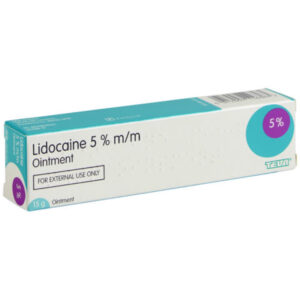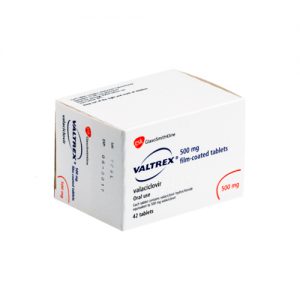Showing 4 products
Pagination
What is genital herpes?
Genital herpes is a viral Sexually Transmitted Infection (STI). It is also known as herpes simplex virus.
-
There are eight identified strains of herpes simplex virus, only two cause symptoms in humans; HSV-1 (type 1) and HSV-2 (type 2).
-
Genital herpes has a variety of presentation, in some people the infection is subclinical, with no associated symptoms. However, often it is associated with painful blisters that affect the surface of the skin and mucous membranes.
-
If you experience sores or blisters around the genital area, it is highly recommended to take an STI test. This can be easily accessed from your local sexual health clinic of GUM clinic.
Is there a difference between Men and Women
No, the virus is the same in both men and women. The only difference is whether you contract HSV-1 or HSV-2, or both.
Preventing herpes infections
Using a condom
The most effective herpes prevention is to use barrier contraception such as condoms. Barrier methods are upto 98% effective at preventing STIs.
Practising safe sex
If you notice sores or ulcers, you're well within your right to stop intercourse immediately and communicate with your partner. If you are in a steady relationship, it is best to avoid sex when sores are present.
Causes of genital herpes
Genital herpes is most often caused by skin-to-skin contact, but other objects such as sex toys have been known to transfer the infection. The condition can remain inactive for a large percentage of your life (see above). The herpes virus is transmissible when on the skin, and you don’t even need to have symptoms to spread the infection. HSV-1 or HSV-2 is on the surface of the skin, it is extremely infectious.
-
HSV-1 herpes causes
Usually manifests as cold sores. It is mostly transmitted through kissing, sharing toothbrushes etc.
-
HSV-2 herpes causes
Predominately causes genital sores. Some people may not show symptoms of herpes (sores, blisters) but are infectious. Transferring through unprotected intercourse is the most common cause, however just skin-on-skin contact can give you the infection, regardless of whether you're using a condom.
-
The good news is recurrent symptoms are often more manageable than the initial outbreak, and you will begin to recognise triggers and the most effective route to cure them.
Symptoms of genital herpes
Pain and Itching
Most people report severe unrelenting pain and/or itching in their genital area.
Red Bumps or White Blisters (Herpes Rash)
This is easier seen on a man’s penis versus a woman’s genital area. It looks like a dry rash on the skin. A herpes skin rash can swell and become very red when itched as if it’s inflamed, these can appear after the initial blister.
Ulcers
Ulcers do not happen all the time, but when they do, people know it. Urination can be very painful because of the blisters. After a day or so, the blisters may rupture and pus or blood may ooze out of it.
Scabs
The bumps, blisters, and ulcers may turn into scabs. They will become dry, and they can itch for some people. Do not itch the scabs, as that can open up the wounds and prolong healing. It can also lead to infecting someone with the virus.
Flu-Like Symptoms
Symptoms present as you’re suffering from the flu. Swollen lymph nodes are common in the groin along with a headache, muscle aches, and fever. Many people start with these symptoms thinking they are just sick with a cold or flu, and then the outbreak happens in the genitals, which leads them to suspect herpes.
Sores
Sores are how the virus spreads. The sores do not have to touch the genitals of someone else to infect that person.
Recurrent Outbreaks
The initial outbreak is the most intense. Outbreaks after the initial one may be milder with just slight burning, tingling, and itching where the infection entered the body. Recurrent outbreaks happen less often over time.
How Long does an outbreak Last?
On average, an outbreak can last up to 3 weeks. This includes the initial tingling, the height of the discomfort and the recovery time. The good thing is you always tend to feel a bout of the virus coming on, rather than experiencing the full impact at once. This means you can have a treatment ready in preparation.
Treatment options for genital herpes
Treating herpes is simple and can reduce the duration of your infection significantly allowing you to carry on living your life symptom free. Treating herpes also makes you less infectious.
Prescription only medicines
Prescription medications are one of the most effective forms of genital herpes treatment and they are clinically proven. The most common medications are Valtrex, Famvir and Aciclovir.
They work by preventing the virus from spreading, helping your immune system kick into action to defeat the virus and soothe symptoms.
First outbreaks are often treated with Aciclovir hard capsules taken for 10 days but you can use additional cream with this medication (be sure to thoroughly read the patient leaflet before taken any prescription medication).
For future outbreaks, Valtrex and Famvir can be used as well as Aciclovir, and you may only need a 5-day course of treatment.
Self-help non-medical therpay
- Lightly cleaning with lukewarm plain or salted water to soothe and heal tender blisters and the surrounding area.
- In the same way you use Vaseline for cold sores and chapped skin, they can also help alleviate the pain caused by blisters.
- Pain whilst urinating can be helped by methods used for the usual urinary tract infection. Primarily, drinking lots of water.
- Steer clear of tight and/or synthetic clothing that will aggravate bouts and cause unnecessary friction.
- Apply a cool flannel to the infected area to speed up the healing process.
You can purchase treatment for genital herpes from Access Doctor online, only after you have a confirmed diagnosis from either a sexual health clinic or your own GP.
Simply complete our health consultation, and one our own prescribers will check if the treatment choice is suitable for you.
Once approved, our pharmacy team will prepare and post the treatment to you in discreet and secure packaging
For any further information on genital herpes, unclear which treatment options you may need, or you are treating severe bouts of herpes, please speak to your own GP or your nearest sexual health clinic




We’re here to help.
Our friendly team is available to help Monday to Friday 9:00am - 5:00pm.
If you need urgent assistance, do not use this service. Call 111, or in an emergency call 999.




